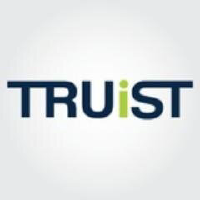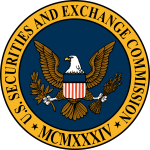 realfast95
2 años hace
realfast95
2 años hace
As the Federal Reserve's interest-rate hikes sent bond prices plunging last year, some of the country's largest banks used a simple accounting maneuver to help keep billions of dollars of losses from piling up on their books.
They declared that they intended to hold on to large portions of their money-losing bonds until they matured rather than selling them, and they then changed the bonds' accounting labels accordingly. From then on, the bonds would be frozen in time, no matter how far their values fell in the market.
The Wall Street Journal identified six large U.S. banks including Charles Schwab Corp. and PNC Financial Services Group Inc. that together switched the classifications on more than $500 billion of their bond investments last year. For some banks, excluding the unrealized losses from their balance sheets allowed them to report robust levels of capital when in reality their assets were worth much less.
The collapse of Silicon Valley Bank has drawn fresh attention to a decades-old debate over the accounting rules. Current rules often let companies show vastly different values for the same assets, depending on what they claim they intend to do with them. In addition, the rules often let companies change their stated intentions midstream, which can have outsize impacts on how healthy their balance sheets look.
The six banks were able to flatter their balance sheets with a flick of the accounting ledger. Banks can hold assets as "available for sale," which means they are valued using market prices. Another option is to call them "held to maturity," meaning they won't be sold. These bonds are held at the banks' cost. The logic is that daily market prices aren't relevant to assets that banks wouldn't sell.
The banks' held-to-maturity bonds had a combined $1.14 trillion balance-sheet value as of Dec. 31 , up from $681 billion a year earlier. The increase was mainly due to the reclassifications.
The $1.14 trillion figure was $118 billion , or 12%, higher than the bonds' fair-market values, disclosed in footnotes to the banks' financial statements. The $118 billion was equivalent to 18% of the banks' total equity, which is the difference between assets and liabilities.
A year earlier, the difference between the held-to-maturity bonds' market value and balance-sheet value was negligible. Most of the securities were backed by the U.S. government. The amounts of the reclassifications were disclosed in the companies' financial reports. The Journal found the six banks using data compiled by S&P Global.
The large gap between the stated values and actual values of banks' assets has fueled growing concern about whether a significant portion of many banks' capital is illusory. Capital is roughly synonymous with equity, and refers to the financial cushion a company has available to absorb future losses.
The six banks' reclassifications were part of an industrywide shift last year as bond prices fell. About 48% of securities held by U.S. banks were classified as held-to-maturity at the end of 2022, up from 34% a year earlier, according to Federal Deposit Insurance Corp. data. Unrealized losses on securities were $620 billion , of which $341 billion were on bonds dubbed held-to-maturity. The six banks' unrealized losses on held-to-maturity securities accounted for 35% of the industry total.
The biggest such reclassification was by Charles Schwab, which is structured as a savings and loan holding company and regulated by the Fed. It transferred $188.6 billion of securities to the held-to-maturity category from available- for-sale. Schwab wasn't labeling any of its bonds as held-to-maturity at the end of 2021.
PNC transferred $82.7 billion of bonds to held-to-maturity from available-for-sale. JPMorgan Chase & Co. transferred $78.3 billion . Truist Financial Corp. , Wells Fargo & Co. and U.S. Bancorp transferred $59.4 billion , $50.1 billion and $45.1 billion , respectively.
"This is an artificial accounting construct, not an economic measure of the value of the assets," said Sandy Peters , head of financial reporting policy for the CFA Institute , which certifies chartered financial analysts. "The value of a bond doesn't change based upon how management decides to classify it. It's worth what it's worth."
Silicon Valley Bank's parent, SVB Financial Group, didn't reclassify any securities last year, and most of its bonds were labeled held-to-maturity from the get-go. That meant SVB had locked itself into a long-term bet that interest rates would stay low. The unrealized losses on those bonds at year-end were almost as large as SVB's $16.3 billion of total equity. It couldn't sell the bonds without booking losses and taking hits to capital.
By the end of last year, the fair-market value of Schwab's held-to-maturity bonds was $14.1 billion less than their balance-sheet value. The unrealized losses were equivalent to 39% of Schwab's total equity. The unrealized losses exceeded Schwab's $6.2 billion of tangible common equity, which is a bare-bones capital metric that excludes preferred stock and intangible assets.
A Schwab spokeswoman pointed to a March 23 open letter by the company's co-chairmen, Charles Schwab and Walt Bettinger . "Focusing attention on 'unrealized losses' in our held-to-maturity (HTM) portfolio is very misleading," they said, adding that "there is a near-zero chance we'd need to sell any of our HTM portfolio before maturity."
At Wells Fargo , unrealized losses on held-to-maturity securities were $41.5 billion , equivalent to 23% of total equity. At U.S. Bancorp , they were $10.9 billion , or 21% of total equity. At Truist, they were $9.9 billion , or 16% of total equity. The percentages at JPMorgan and PNC were 13% and 11%, respectively.
In their annual reports, most of the banks said they did the transfers to keep the fair-value changes out of their equity and capital metrics. In its annual report, PNC said it changed its intent for the securities "to reduce the impact of price volatility" on equity and capital. Truist said it made the transfers as the company "continues to execute upon its asset-liability management strategies."
Wells Fargo said it made the transfers "to reposition the overall portfolio for capital management purposes." JPMorgan cited "capital management purposes."
Jeffrey Shelman , a U.S. Bancorp spokesman, said: "We are always making decisions to manage our balance sheet to ensure appropriate liquidity, balanced by the desire to mitigate the volatility that is associated with interest-rate movements." Spokesmen for PNC, JPMorgan and Truist and a Wells Fargo spokeswoman declined to comment.
(END) Dow Jones Newswires
03-29-23 0530ET
 realfast95
2 años hace
realfast95
2 años hace
Tom Hackett named chief executive officer of Truist Securities
9:00 am ET March 13, 2023 (PR Newswire) Print
Hackett succeeds John Gregg, who will retire
Truist Financial Corporation (NYSE: TFC) today announced that John Gregg will retire, and that Tom Hackett has been named chairman and chief executive officer of Truist Securities, Truist's full-service corporate and investment bank, effective March 31.
https://mma.prnewswire.com/media/2031120/Truist_Securities_Tom_Hackett.jpg
Based in Atlanta, Hackett currently serves as president and chief operating officer (COO) of Truist Securities, a position he's held since 2020. He joined Truist Securities in 2008 and has more than 30 years of corporate and investment banking experience. In his new role, Hackett will report to Truist Vice Chair Beau Cummins.
"Tom's purpose-driven leadership and depth of experience make him well-suited to lead our firm as we continue to leverage our range of capabilities and expertise to position our clients for success," said Cummins. "I also want to thank John for his leadership in growing Truist Securities and creating a culture that is centered around serving our clients and helping them achieve outstanding results."
Hackett has been one of the primary architects of a growth strategy that has led Truist Securities to establish itself as a leading player in corporate and investment banking. As president and COO, he was responsible for the Investment Banking, Corporate Banking, M&A, Capital Markets and Asset Finance organizations.Hackett led a team that serves corporate clients with the full suite of capital markets, advisory, and traditional banking products and services.
Hackett previously held additional leadership positions at Truist Securities, including head of Investment Banking and head of Asset Finance, a role in which he led teams focused on Asset Securitization, Asset Based Lending, Structured Real Estate, Project Finance, and Equipment Finance.Prior to joining Truist, Hackett served in various corporate and investment banking capacities at several industry-leading institutions.
"The strength of Truist Securities is our teammates, their focus on partnering closely with our clients, and delivering expertise that helps them achieve their goals," said Hackett. "As we look to the future, our client-first approach, ability to navigate complex transactions and long-term view will continue to deliver sustained success for clients and Truist."
Hackett earned his Bachelor's degree in Finance from Auburn University and a Master's degree in Business Administration from Emory University. He serves on the Georgia Research Alliance Board of Trustees.
About Truist SecuritiesTruist Securities is the full-service corporate and investment banking arm of Truist Financial Corporation. With a rich history extending back more than 125 years, Truist Securities offers a robust capital markets and investment banking platform that includes a comprehensive array of strategic advisory, mergers and acquisition, and capital markets capabilities for corporate and institutional clients, including sales, trading and research services in both fixed income and equity. The firm also provides corporate finance, asset finance, risk management, liquidity, and treasury management solutions to meet clients' full spectrum of financial needs. Headquartered in Atlanta, Truist Securities has offices located across the U.S. Learn more atwww.truistsecurities.com.


 Hot Features
Hot Features




